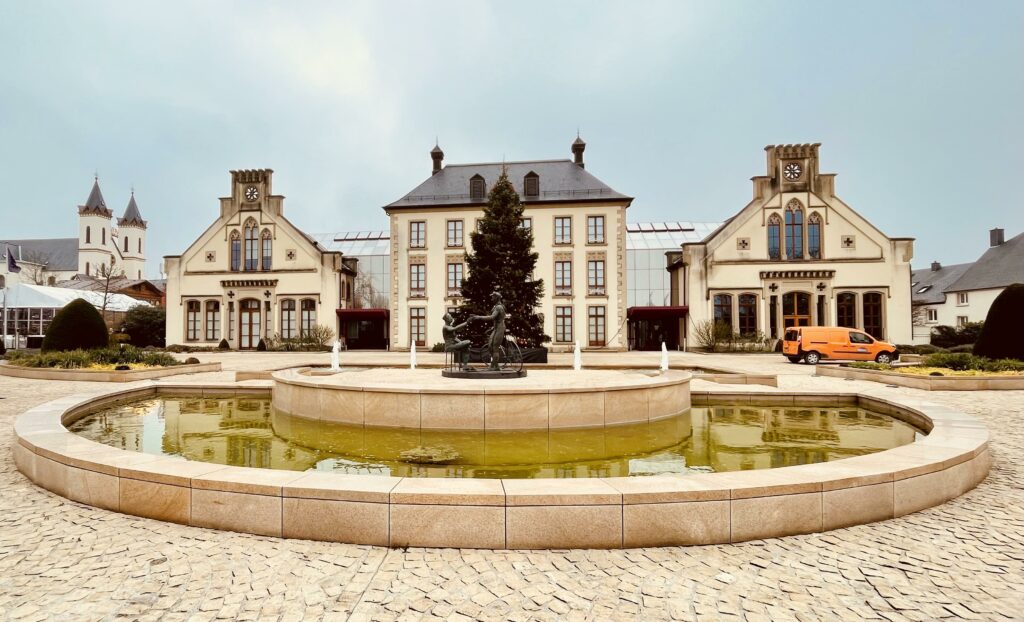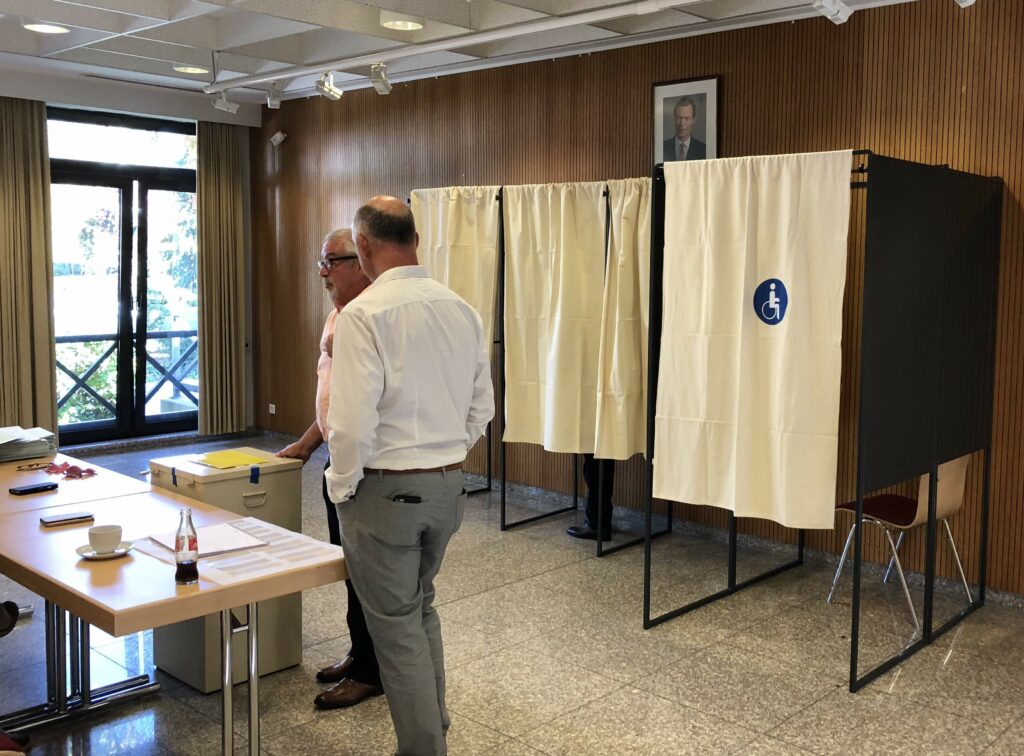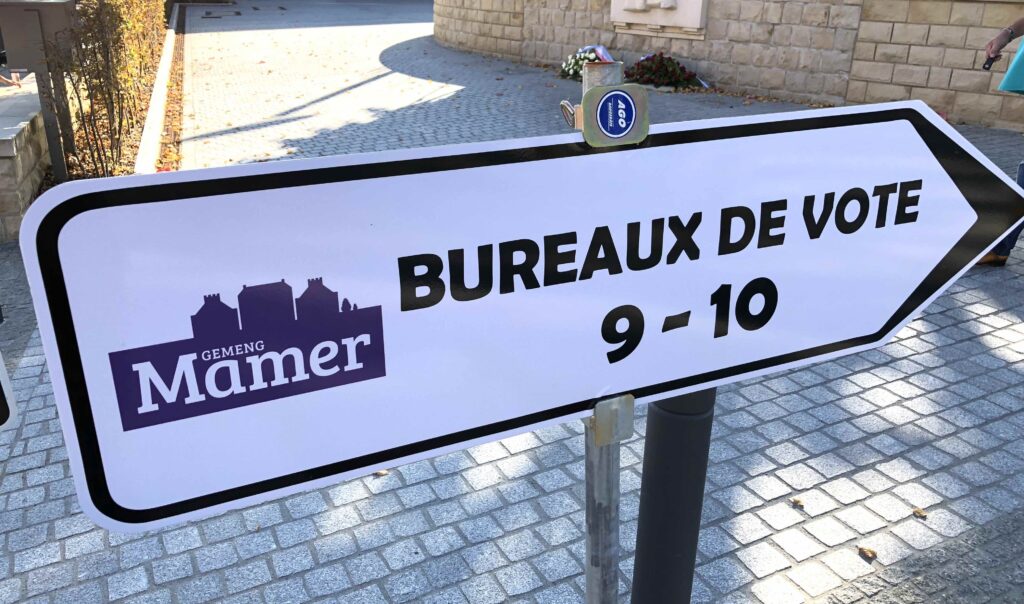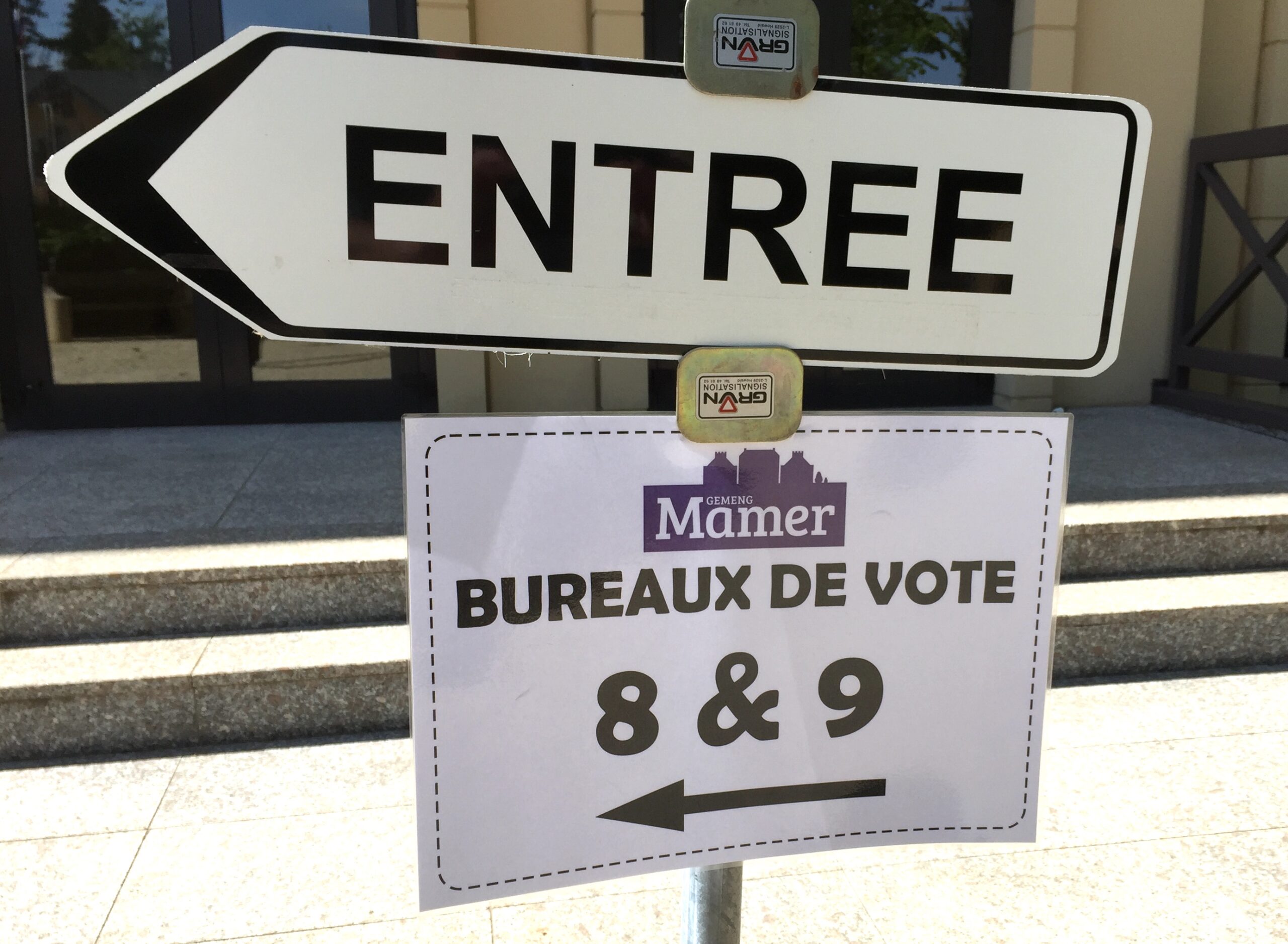You don’t have the luxembourgish nationality, but still want to take part in the local elections? It has never been easier! You can now register on the electoral roll even if you have only been living in Luxembourg for a short time. All you have to do to participate is to register on the electoral roll at the local administration or by following the instructions on the website www.icanvote.lu. You can do this until 17 April at 5 p.m.! In order to better explain the process of the communal elections, the DP Mamer presents you ten answers to questions you may have. Do not hesitate to contact us if you need more information: mamer@dp.lu.
What are communal elections in Luxembourg?
Every six years, the citizens elect the members of the communal council of their commune of residence. In Mamer, 15 local councillors are to be elected on 11 June 2023. This is two more councillors than at the last local elections on 8 October 2017. Why? Because the number of inhabitants has now exceeded the threshold of 10,000. Municipalities with between 10,000 and 15,000 inhabitants have 15 seats in the municipal council.

Are the mayor and alderpeople directly elected?
No. The college of mayors and alderpeople – rather like a government at national level – is only formed after negotiations between parties. If a coalition has been formed representing a majority in the municipal council, it is the coalition lists that agree on the candidates who will take on the mandates of mayor and alderpeople. Of course, those who get the most votes in the elections have a good chance of becoming mayor or alderman. At present, Mamer has one mayor and two aldermen. A municipality with between 10,000 and 15,000 inhabitants can have three alderpeople.

Who stands for election in Mamer?
Mamer is one of the Luxembourg municipalities where the elections are done by list voting with proportional representation. In fact, all municipalities with more than 3,000 inhabitants are part of this system, whereas those with less than 3,000 inhabitants are elected by majority vote. While in the majority system every candidate stands individually, in the proportional system electoral lists have to be composed. In March 2023, four lists are running in Mamer: CSV, LSAP, déi gréng and DP, each with 15 candidates. But the last deadline for filing candidacies is 12 April. The lists will each present their programme for the future of Mamer on the internet, in leaflets, but also in election meetings. You will also find the candidates on posters in the municipality by mid-May.
How many votes do I have?
As many votes as there are councillors to be elected, i.e. 15. On the day of the elections you can choose to support an entire list – in which case each candidate gets one vote. Or you can split your 15 votes between candidates on different lists. Please note: if you allocate too many votes or leave any mark on your ballot paper, it will not be valid. If you wish to allocate fewer votes than the 15 available to you, the ballot paper will be valid.

How do I know where to vote?
All voters will receive a notice from the municipality by 6 June at the latest, by registered post, indicating the address of their electoral office. These offices are open from 8.00 to 14.00. You must bring your identity card or passport with you. After the officials have checked your identity and your inscription on the electoral roll, you will be given your ballot paper and asked to go to an electoral cabin. After voting, you fold your ballot paper so that no one can see how you voted and throw it into the ballot box, then leave the polling station. You will find out the results by the evening of 11 June at the latest on the elections.public.lu website.
Is voting compulsory?
From the moment you are registered on the electoral list, voting is compulsory. Failure to vote can result in fines. A first unjustified abstention can be punished by a fine of 100 to 250 euros. In the event of a second offence within five years of the conviction, the fine is between 500 and 1,000 euros. If, however, you are unable to vote due to force majeure, you must send a letter with supporting documents to the State Prosecutor responsible for verifying abstentions from voting.

I will be abroad on 11 June. May I vote by mail?
Yes. You can even vote by mail if you are in Luxembourg on 11 June. But you have to submit a request to the commune or electronically on www.myguichet.lu. If you wish to vote by mail from abroad, you must submit your application between 20 March and 2 May. If you wish to vote by mail in Luxembourg, you must submit your application between 20 March and 17 May.
Unfortunately, I cannot manage to get away to vote on 11 June. Can I send someone in my place?
No. No. No voter on the electoral roll can be represented by anyone.
I still don’t want to go and vote. Can I ask to be removed from the electoral roll?
Yes. Yes, this is possible at any time. All you have to do is apply to the commune.
When do I find out who will be mayor and what the political programme of the majority in the council will be for the next six years?
The last date for swearing in new mayors, aldermen and municipal councillors is 1 September 2023. Minister of the Interior Taina Bofferding will carry out this swearing-in. The lists must therefore agree on the mandates at the head of the municipality by 1 September. Negotiations on the details of the coalition programme for the next six years may take longer of course. But normally the programme is known fairly quickly.
Want to practice voting and test your knowledge about the municipal elections? The website www.letzvote.lu let’s you do that!



